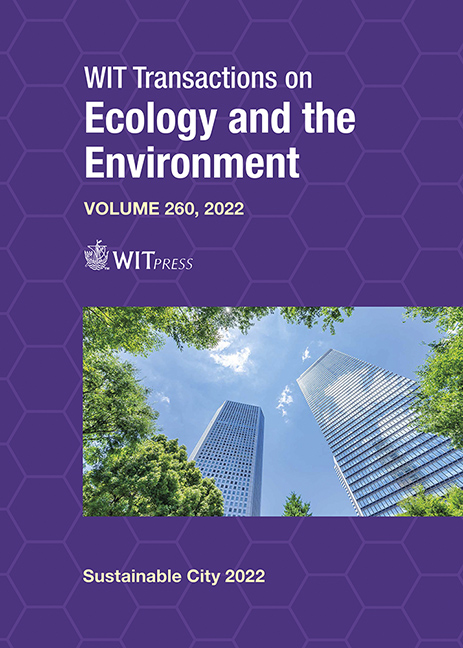ANALYSIS OF WASTE VOLUME AND TYPE GENERATED IN O.R. TAMBO DISTRICT MUNICIPALITY, SOUTH AFRICA
Price
Free (open access)
Transaction
Volume
260
Pages
10
Page Range
415 - 424
Published
2022
Paper DOI
10.2495/SC220341
Copyright
Author(s)
NELISA TEMBANI, MOTEBANG D. V. NAKIN, ZENDY MAGAYIYANA, ASABONGO MNGENI
Abstract
The volume and varieties of municipal solid waste have increased rapidly because of economic growth, urbanization, and industrialization. The foundations for proper solid waste management planning are quantification and classification of municipal solid waste, but the requirements for collection, transportation, classification, and disposal are grossly under-invested and hardly implemented. As a result, the focus of this research is on the amount and types of waste generated in the O.R. Tambo district municipality. The O.R. Tambo district municipality has implemented a regional recycling program as part of an integrated solid waste management strategy to ensure waste management in its five local municipalities is sustainable. In a 31-month period, the total amount of waste material processed in the five local municipalities was projected to be 2,171.63 tonnes. The types of waste collected in O.R. Tambo district municipality include cardboard (K4), plastic (PET, HDPE, LDPE, and LLEPD), aluminium, and white paper. The study used two-way analysis of variance to compare the means of different waste types that are collected in the study area. The five local municipalities have varying quantities and compositions of waste. The findings of the study demonstrate that different local municipalities were selective in terms of the waste they recycled, which motivated waste pickers to gather certain waste streams from the streets and dump sites. Solid waste generation reduction, proper training, and the implementation of incentive and other fiscal policies were identified as hurdles to effective solid waste management, and recommendations for integrated solid waste management strategies were presented.
Keywords
integrated solid waste management, buy-back centres, recycling, informal sector, street waste picker, job creation





